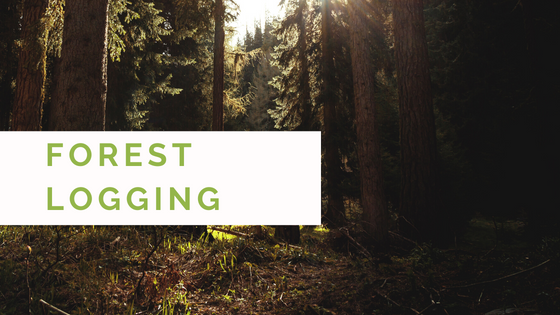Forest logging is a broad term that refers to the harvesting of trees from a forest for commercial purposes. The wood is used in many products including lumber, paper, and timber. Forest logging can be conducted by individuals with permits or by professional loggers who are properly licensed and insured.
Logging rights can be bought, sold and leased through several different types of contracts. These agreements typically require the buyer to have experience in this type of work and to demonstrate competency before being allowed access to the forest.
Some forests are privately owned while others are owned by the government. In most cases, it is illegal for anyone other than licensed professionals to operate within these protected areas without permission from their owners or managers.
How Buying Logging Rights Works?
When you buy logging rights, you are purchasing the right to harvest lumber from a particular area of land. These agreements can be made with private landowners or government agencies that own large tracts of forestland. The terms and conditions will vary based on the type of agreement in place and how much access is granted by the owner.
If you are purchasing the rights from a private landowner, you will be responsible for obtaining the appropriate logging permits and complying with all local laws. If you are working on government-owned land, your agreement may specify that permission must be obtained from the agency before proceeding with harvesting operations.
The terms and conditions of your agreement may also include the type of timber species that can be harvested, the amount of land you are permitted to log and the size of your operation. Some agreements will require you to leave a certain percentage of trees standing or growing onsite in order to maintain ecological balance, while others will allow for larger clear-cutting operations.
There are many ways to get into the logging business, but it is important to understand the regulations and limitations before you begin.

Knowledge of Forest Law Is Important
When you are working in a logging operation, it’s important to know the laws that govern the forest. This includes knowing about property ownership and how it can affect your ability to log on certain properties. You should also be aware of the regulations that apply to logging operations in your region.
For example, in Estonia , there is a law that states that logging companies must obtain a license from the government before they can begin operations. This rule applies to both domestic and foreign businesses.
Consulting With Forest Law and Management Companies
As you can see, raieõiguse ost can be a complex process in Estonia. That’s why it’s important to consult with an experienced law firm that specializes in forest law and management, such as Vestman Grupp. Their company has decades of experience handling cases like these, and they can provide you with the legal guidance you need to ensure your rights are protected.
They can also help you obtain the licenses and permissions necessary to operate in Estonia. If you’re interested in purchasing logging rights, or if you’re a foreign company looking to sell your timber rights, contact the experts at Vestman Grupp today. They can help you navigate the complex process of buying and selling timber rights in Estonia.
Conclusion
If you’re looking to purchase logging rights, it’s important to understand the laws and regulations surrounding this process. It won’t do you any good to purchase rights if they aren’t legal or valid. You can avoid this by working with a reputable company that specializes in forest law and management, such as Vestman Grupp.




